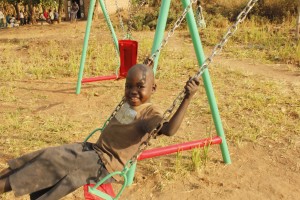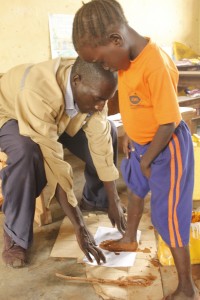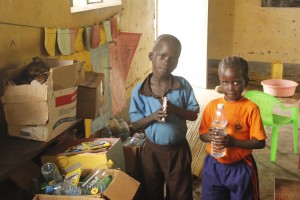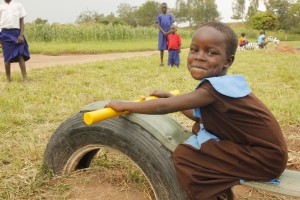Golf Day
July 25, 2016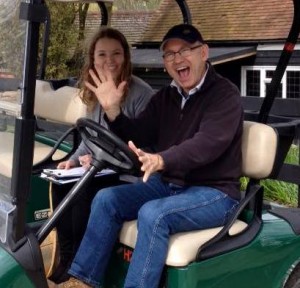 This year our annual Golf Day took place at the Warren Estate in Essex. 16 teams worked their way around the beautiful course, followed by a three-course dinner, prize-giving, and a silent auction. Congratulations to Academy Insurance for their second win a row!
This year our annual Golf Day took place at the Warren Estate in Essex. 16 teams worked their way around the beautiful course, followed by a three-course dinner, prize-giving, and a silent auction. Congratulations to Academy Insurance for their second win a row!
And thank you to everyone who donated prizes – including a week in a luxury South African Golf Resort, signed memorabilia, and tickets to see England play at Wembley. We are delighted to say that we raised over £17,500 for education in Zambia and Uganda – our most successful Golf Day ever!
To all our friends and supporters who planned, organized, and donated prizes – we couldn’t have done it without you, thank you.
Posted in News | Leave a commentGrowing season in Northern Uganda
July 25, 2016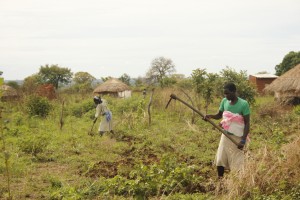 Dark green fields indicate the rainy season has started in Northern Uganda. And with it, the new growing season. We support 15 school demonstration gardens in Amuru District. Parents with children at the school farm these gardens while African Revival staff give training, support, and advice.
Dark green fields indicate the rainy season has started in Northern Uganda. And with it, the new growing season. We support 15 school demonstration gardens in Amuru District. Parents with children at the school farm these gardens while African Revival staff give training, support, and advice.
Each group selects the crops they would like to plant. Staple crops include maize, rice, millet, and cassava. And parents also choose fruits and vegetable like onions, eggplants, peppers, avocados, tomatoes, oranges, 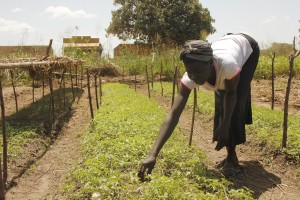 mangoes, bananas, and pineapples. This season we have been busy helping farmers sow
mangoes, bananas, and pineapples. This season we have been busy helping farmers sow
seeds in nursery beds and transplant into main gardens.
School demonstration gardens bring parents closer to their children’s school so they become more engaged in their children’s learning.
Posted in News | Leave a commentNew classrooms
July 25, 2016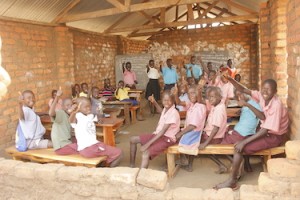 Thanks to our wonderful supporters in the UK, we have also raised enough money for new classroom blocks at Koch Lila primary school and Lacek community school.
Thanks to our wonderful supporters in the UK, we have also raised enough money for new classroom blocks at Koch Lila primary school and Lacek community school.
Whenever we help schools with a new construction, we always ask the school community to make some contribution – according to what they can afford.
We visited both schools and found parents at Lacek community school have already bought sand to make mortar. And at Koch Lila, parents have made 15,000 bricks – almost enough for the whole construction!
Posted in News | Leave a commentNew latrines
July 25, 2016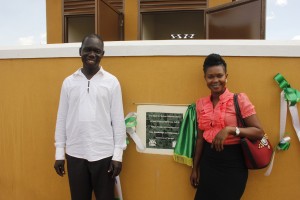 Back in May, we handed over a new latrine block to Teddi Community School in Northern Uganda. As a community school Teddi was set up and run by parents and receives no support from the Government. But last year, pupils at Teddi performed better than those from the local Government school!
Back in May, we handed over a new latrine block to Teddi Community School in Northern Uganda. As a community school Teddi was set up and run by parents and receives no support from the Government. But last year, pupils at Teddi performed better than those from the local Government school!
Posted in News | Leave a comment
Children speed through P1
July 25, 2016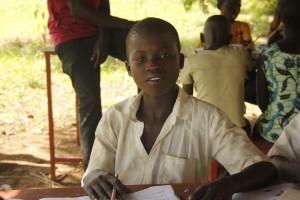 Our 30 Speed School classes in Northern Uganda are taking over 700 children through the first three years of primary school in just one year! So far this year, 733 children have sped through the curriculum for the first year of primary school. And in June, they started the curriculum for Primary 2. By the start of the next academic year in 2017, they will be able to join Year 4 of mainstream primary school.
Our 30 Speed School classes in Northern Uganda are taking over 700 children through the first three years of primary school in just one year! So far this year, 733 children have sped through the curriculum for the first year of primary school. And in June, they started the curriculum for Primary 2. By the start of the next academic year in 2017, they will be able to join Year 4 of mainstream primary school.
Learning to read
July 25, 2016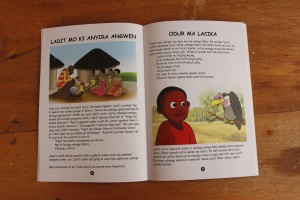 There is a strong story telling culture in Northern Uganda and to encourage reading in our nursery education work, we have developed a colourful book of traditional Acholi folk stories for teachers to read with their pupils. We also created 7 reading books for children, each covering a different topic like what we wear, transport, and places in our community. Each book is printed in English and in Acholi so children learn to read in both languages. We have printed 250 reading books and 60 traditional folk storybooks, which we will distribute to our 10 partner nursery schools. But more are available to order for other schools and organisations to use!
There is a strong story telling culture in Northern Uganda and to encourage reading in our nursery education work, we have developed a colourful book of traditional Acholi folk stories for teachers to read with their pupils. We also created 7 reading books for children, each covering a different topic like what we wear, transport, and places in our community. Each book is printed in English and in Acholi so children learn to read in both languages. We have printed 250 reading books and 60 traditional folk storybooks, which we will distribute to our 10 partner nursery schools. But more are available to order for other schools and organisations to use!
5 benefits of play for Early Childhood Development
July 15, 2016
Much of a child’s early years are spent playing, exploring and testing their environment and own personal boundaries. All of this play has significant and proven benefits for a child’s early development. Research has shown that children who regularly engage in play-based learning have better cognitive flexibility, working memory and self-regulation ability.
Here at African Revival, we recognise the immense benefits of play-based learning and have incorporated it as one of the major elements of our jumpstart! nursery education programme. In our 10 jumpstart! schools, we are building playgrounds, training teachers in how to guide play-based learning and make their own play materials using natural materials, and even teaching parents how to encourage productive play at home. We know that play is incredibly important for early childhood development – but what exactly are the top benefits?
- Better behaviour
Children behave better in the classroom when they have had the chance to blow off steam and release energy on the playground during the day. Playing is a known method of stress release that can help with a child’s emotional welfare, as nursery teacher Gino, from Purongo Hill Primary School in Nwoya district says: “the playground is where the children release their stress and refresh their minds between learning”
- Good social skills
Play can help young children become more aware of other people’s feelings and develop empathy. During play, whether it is inside or outside of the environment, children must interact and cooperate with each other, as well as share play equipment which requires good communication skills. Children can build relationships, learn to resolve conflicts, negotiate and regulate their emotions and behaviors. According to nursery teacher Gino, increased play-based learning at Purongo Hill has “eliminated that spirit of being selfish, and also helping the children with sharing because of that thing of collaboration”
- Improves academic performance
In 2009, research from the American Journal of School Health found that the more physical activity tests children can pass, the more likely they are to do well on academic tests. According to psychologist Kathryn Hirsch Pasek, “Children learn to count when they’re doing hopscotch […] They are telling stories on the playground, and they’re getting active.”
Furthermore, play can nurture qualities like self-discipline and attentional control, which can be just as vital for school readiness as content knowledge. Children with longer attention spans and self-control can focus more on tasks in the classroom. This is because when children engage in make-believe play that involves role playing, there are generally rules that they must follow which involves regulating their natural self and behavior. By practicing this in a safe, fun environment, their self-control is enhanced, which can then be transferred to a classroom setting.
- Language development
Moreover, make-believe play that involves role playing can also help children to develop their language skills, as was shown in a British study (Lewis, 2000). Infant pupils were asked to engage in symbolic play, whereby they use objects, actions or ideas to represent other objects, actions or ideas. For example, a child may put a wooden block to her ear as a pretend mobile phone. Children who scored higher on a test of symbolic play had better language skills, both in terms of what they understood and spoke. This suggests that play helps to develop and solidify language skills.
- Increases enthusiasm for learning
In northern Uganda, where drop out rates amongst primary school students are very high, play-based learning can encourage pupils to stay in school and attend more frequently. Indeed, at Purongo Hill Primary School in Nwoya district, nursery teacher Gino says that enrolment has skyrocketed since African Revival constructed a playground at the school (from 30 pupils in the nursery section to 120): “the playground has been an advantage to us because it has drawn in children, increased enrolment and reduced drop outs”.
Posted in News | Tagged Acholi, African Revival, Development, ECD, Headteacher, inspiration, Inspiring Head Teacher, International Development, Jumpstart!, play, Teacher training, Uganda | Leave a comment

